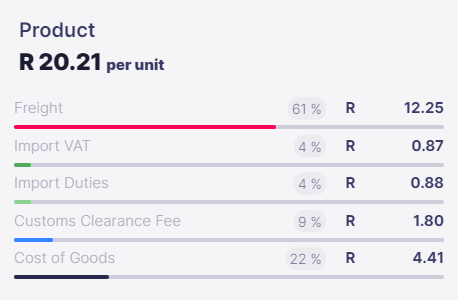
Starting a small business in your spare bedroom can bring a whole new meaning to “working from home”. But, this could work to your advantage! eCommerce activity has skyrocketed since a certain global event forced everyone to start spending way more time at home.
It’s never been easier to build a business from scratch, from home. There are major advantages to operating from home, too. No commute (win!), and you don’t have to lease a commercial space (even bigger win!). Depending on the type of business you want to begin, it might even be as simple as operating from your spare room or, worst case scenario, your garage.
The easiest kind of business to start from home is one where you’re buying goods in bulk (also known as wholesale) and reselling them online at a profit. You might need a little spare room for inventory, sure, but this business model requires very little space and effort to start up at home. We’ll show you how!
Okay, so we’ve established that, for the purposes of this guide, you’re going to start a product resale business. Great! You can take advantage of existing eCommerce platforms like Takealot to sell your goods. But, there are tons of other Takelaot resellers and the like out there. How are you going to stand out from the crowd?
It’s one thing to decide to resell on a platform like Takealot – it’s another thing entirely to 1) decide what goods you’re going to sell, and 2) how you are going to market your business to differentiate from the competition. We’ll get into that later.
Anyway, while you’re honing your business idea, you might want to consider two Big Questions. The first is: what problem is your business solving? If you can sell your solution, then you can sell your products. The second question is: who are you selling to? You need to identify your target market before you can begin to differentiate from the competition or start marketing effectively.
You ain’t gonna get very far without a well-developed business plan – we can tell you that much for free! A business plan might sound like a royal pain in the – well, you know. But, a business plan will help you articulate your business goals and clarify your vision.
It will also prove indispensable if you, like most small business operators, ever need to approach someone (like a bank or private investors) for funding. Anyone who’s going to be lending you a buck is going to want to see how far it’s going, and what the return on their investment is going to be.
So, your business plan needs to include a few basics. Here’s a rough guide to what should be included in your business plan:
Ah, the final step. How are you going to get your goods from your supplier (hint: finding one in China is a very good idea for your budget) to South Africa? How much is it going to cost you? And, most importantly, how are you going to make sure that you aren’t being taken for a…well, you know what.
You know what they say about logistics? Trust nobody. Well, it might be counterintuitive for a shipping and logistics company to be backing that claim, but we can’t escape the truth. As industry insiders, we know exactly how badly things can go.
Packages go missing, customers don’t receive their orders, and businesses fold because of unforeseen hiccups like tangles with customs, incorrect HS codes, and storage fees. The world of logistics is an ancient and difficult one to navigate. Don’t go it alone!
We can’t claim to be the be-all-and-end-all experts on all things shipping and logistics. After all, we specialise in shipping small loads from China to South Africa for the most competitive rates on the market. That being said, we belong to an extensive network of logistics professionals. If we can’t help you with something, we know somebody who can.
There are a lot of steps to take before you can launch a small business from home and finally call your spare room your “home office”. But, with the right service providers on your team, it’s a lot easier than you might think. You just need someone in your corner to help you navigate the hard parts.
So, let’s get this show on the road! See exactly how our costs are calculated by visiting our site. We also man an extremely responsive chat function during business hours. We love speaking to our customers! So, send us your queries, your questions, your troubles and your woes. We guarantee that we’ll probably be able to help.
Landed cost is the sum of all expenses associated with importing your goods from China to South Africa. This includes the cost of the goods paid to your supplier, the shipping costs, clearance costs and the import taxes & duties.
It is represented on a per unit cost and helps you with:
Note: This is not what you are paying to Airpool but rather what you are paying to all the suppliers and relevant parties: Airpool, the Manufacturer of the goods and the Import Taxes (VAT & Duties)
